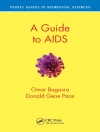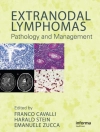One of every four deaths occurring in the United States today is due to cancer, and the number of diagnoses continues to increase. Fortunately, however, cancer treatments are improving, which means more and more patients are surviving for longer periods. Complementary methods have played an important role in these treatments, showing benefits such as a higher quality of life, reduced instance and severity of the side effects of standard therapy, and a general improvement of the patient’s immunological state. Indeed, these methods – from carefully monitored nutrition, exercise, and psychological support to enzyme substitution, phytotherapy, hyperthermia and microbiology therapy – are critical to a treatment’s overall success. More than ever, doctors need accurate, up-to-date information about which methods have been proven in scientifically based clinical studies (EBM) to be acceptable for use in conjunction with standard treatment methods. In this unique book, experts ranging across medical disciplines present data on the efficacy of these methods as they are currently being used, the necessary scientific background, and practical advice for introducing them into practice. With illustrations, tables, and detailed descriptions, this book is an ideal reference and an invaluable tool for educating patients about this encouraging aspect of cancer therapy. Throughout, the contributors emphasize the latest scientifically and clinically tested treatments. A useful chart lays out in detail which treatments are applicable for various types of cancers and what effects they have been shown to cause. The word is out about the beneficial qualities of complementary therapies in the treatment of cancer. More physicians are offering it to their patients, and more and more patients are demanding it. You – and your patients – cannot afford to be without this valuable resource.
Innehållsförteckning
<p>1 Introduction to Complementary Medicine in Oncology<br>2 The Conventional Treatment of Cancer: The Case of Non-Small Cell Lung Cancer<br>3 Tumor Immunology<br>4 Introduction to Medical Biometry<br>5 Expert Systems in Complementary Oncology<br>6 Observational Studies on Drugs Efficacy<br>7 Electronically Supported Outcome Measurement<br>8 Cancer and Nutrition<br>9 Exercise in Cancer Prevention and Follow-up<br>10 Psycho-oncology<br>11 Biological Basis for Using High Dose Multiple Antioxidants as an Adjunct to Radiotherapy, Chemotherapy, and Experimental Cancer Therapies<br>12 Selenium in Oncology<br>13 Proteolytic Enzymes<br>14 Lectin-Standardized Mistletoe Extracts<br>15 Mistletoe Extracts from the Anthroposophical Point of View<br>16 Thymic Peptides<br>17 Probiotic Therapy<br>18 Blockade of Adhesion Molecules<br>19 Tumor Vaccination and Antibody-Mediated Immuno-therapy<br>20 Hyperthermia<br>21 Applied Complementary Oncology<br>22 Advances in Oncology—From Research to Application</p>
Om författaren
Josef Beuth, Ralph W. Moss












